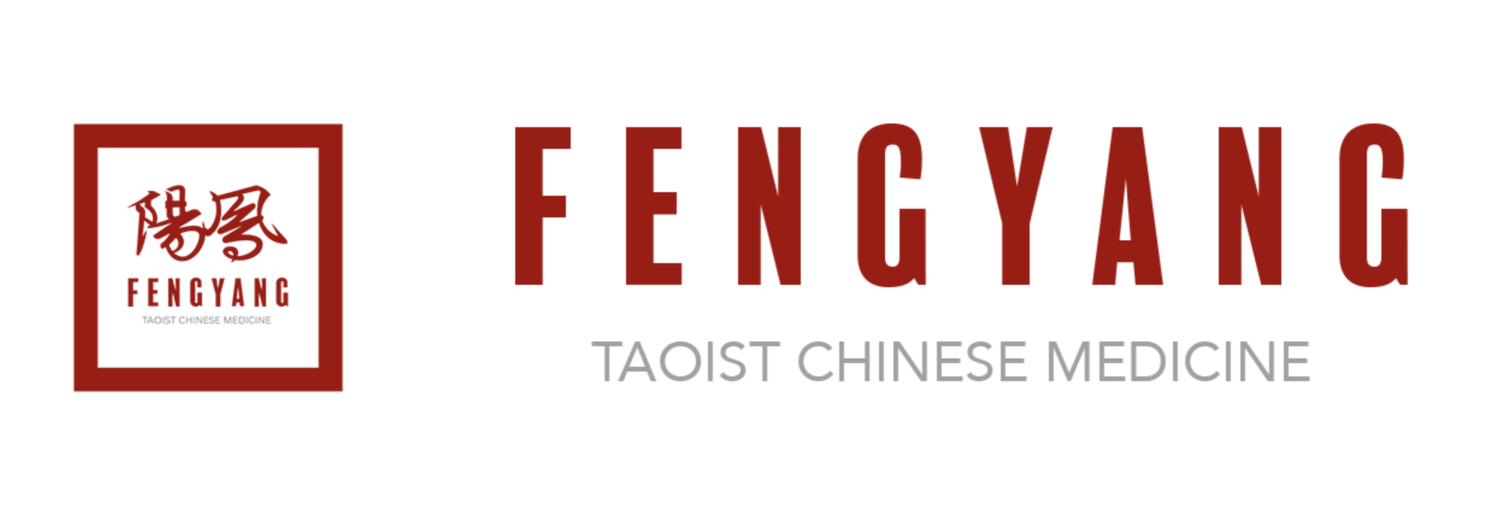Case Organization and Analysis: Survival with Metastatic Breast Cancer (Lymph Nodes and Contralateral Breast)
I. Basic Information
- **Patient**: XX
- **Initial Consultation Date**: May 9, 2025 (12th follow-up)
- **Chief Complaint**: Metastasis to lymph nodes and contralateral breast 6 years after left breast cancer surgery; survival with cancer. Possible recurrence linked to prolonged grief due to the death of her son (heroin overdose), necessitating integrated mind-body healing.
- **Medical History**: No Western anticancer therapy post-surgery. Long-term alternating use of three herbal formulas, combined with Fengyang Tai Chi and Qigong. Maintains good quality of life; no Western oncology visits for 3 years.
- **Tongue Signs**: Pale tongue with tooth marks (++), white coating, sublingual venous congestion (++).
---
II. Pattern Differentiation
1. **Core Pathogenesis**: **Spleen-Kidney Yang Deficiency (Root) with Phlegm-Stasis-Toxin Accumulation (Branch), Complicated by Lung Qi Stagnation and Emotional Trauma**
- **Deficiency Patterns**:
- **Spleen Deficiency with Dampness**: Pale tongue with tooth marks and white coating indicate impaired spleen function and internal dampness.
- **Kidney Yang Deficiency**: Chronic illness depletes kidney yang, necessitating high-dose prepared aconite (20g) to warm yang.
- **Lung Qi Consumption**: Excessive grief ("sorrow dissipates Qi") leads to lung Qi stagnation, exacerbating systemic Qi blockage.
- **Excess Patterns**:
- **Blood Stasis and Collateral Obstruction**: Sublingual stasis (++) reflects blood stasis; postoperative metastasis suggests phlegm-stasis-toxin interaction.
- **Liver Qi Stagnation**: Breast cancer relates to liver meridian dysfunction; grief-induced emotional distress aggravates liver Qi constraint and blood stasis.
2. **Affected Organs**: Imbalance in **Liver, Spleen, Kidney, and Lung**, primarily spleen-kidney yang deficiency, with liver stasis and lung Qi stagnation.
---
III. Treatment Principles, Formulas, and Herb Analysis
Formula 1: Warm Yang, Strengthen Spleen, Activate Blood, and Detoxify
- **Ingredients**:
Prepared aconite (20g), Codonopsis (10g), Atractylodes (10g), Poria (10g), Honey-fried licorice (5g) (Four Gentlemen Decoction), Donkey-hide gelatin (10g), Angelica sinensis (10g), Bupleurum root (10g), Flemingia root (10g), Reishi (10g), Smilax glabra (10g), Gleditsia spine (10g), Cowherb seed (10g), Millettia stem (10g), Salvia root (10g), Scutellaria barbata (10g), Turtle shell (10g), Schisandra berry (10g), Turmeric (10g).
- **Therapeutic Strategies**:
- **Warm Spleen-Kidney Yang**: Four Gentlemen Decoction strengthens spleen Qi; high-dose aconite warms kidney yang; donkey-hide gelatin and Angelica nourish blood; Reishi and Schisandra boost Qi and stabilize lung-kidney interaction.
- **Activate Blood and Resolve Stasis**: Salvia, Millettia, and Turmeric dispel stasis; Turtle shell softens hardness; Gleditsia spine and Cowherb seed break stasis and masses.
- **Soothe Liver and Detoxify**: Bupleurum and Flemingia regulate liver Qi; Smilax glabra and Scutellaria barbata clear heat and combat cancer.
Formula 2: Modified Wumei Wan (Regulate Liver-Spleen, Disperse Masses, Balance Cold-Heat)
- **Ingredients**: Wumei Wan (200g powder), Litchi seed (20g), Tangerine seed (30g), Prepared aconite (10g).
- **Therapeutic Strategies**:
- **Harmonize Cold-Heat**: Wumei Wan (Coptis, Phellodendron, Ginger, Aconite) addresses Jueyin disorders (cold-heat complex), unblocks liver meridian.
- **Warm Yang and Disperse Masses**: Litchi and Tangerine seeds disperse liver stagnation (targeting breast/lymph node masses); aconite supports kidney yang.
- **Emotional Regulation**: Wumei Wan’s sourness stabilizes lung Qi and mitigates emotional turbulence.
Formula 3: Wu Mingjie’s Jiexie Vitality Capsule (Anticancer Detoxification, Stasis Removal, and Immune Support)
- **Ingredients**:
- **Heat-Clearing and Detoxifying**: Dandelion (Taraxacum mongolicum), Smilax glabra, Scutellaria barbata.
- **Blood-Activating and Mass-Dispersing**: Trichosanthes root (Trichosanthes kirilowii), Paederia scandens, Turmeric, Turtle shell.
- **Spleen-Kidney Tonic**: Cordyceps sinensis, Wild Panax ginseng (Changbai Mountain), Codonopsis lanceolata (Shanhai Luo).
---
IV. Treatment Features and Mechanisms
1. **Root-Branch Integration with Mind-Body Focus**:
- **Root Treatment**: Four Gentlemen Decoction + aconite + donkey-hide gelatin fortify spleen-kidney and Qi-blood; Schisberry stabilizes lung-heart interaction disrupted by grief.
- **Branch Treatment**: Scutellaria barbata and Smilax glabra counteract cancer toxins; Salvia and Turtle shell inhibit metastasis via blood stasis modulation.
- **Mind-Body Synergy**: Fengyang Tai Chi and Qigong regulate breathing (lung Qi) and movement (liver Qi), resolving grief-induced Qi stagnation.
2. **Multiorgan Coordination**:
- **Liver Regulation**: Bupleurum and seed herbs disperse constraint, alleviating emotional distress.
- **Spleen-Lung Interaction**: Four Gentlemen Decoction strengthens spleen (Earth) to nourish lung (Metal) via "Earth generates Metal" theory.
- **Kidney-Lung Connection**: Aconite warms kidney yang to support lung Qi circulation.
3. **Emotional Healing Embedded in Therapy**:
- **Herbal Integration**: Wumei Wan’s sour-bitter-pungent profile balances emotional extremes; Schisberry calms the spirit.
- **Qigong Practice**: Meditative breathing and Tai Chi movements release suppressed grief, aligning with TCM’s "regulating Qi to harmonize the spirit."
---
V. Key Herb Pairs and Actions
1. **Prepared Aconite (20g) + Schisandra Berry (10g)**:
- Aconite warms kidney yang (dispersion); Schisberry astringes lung Qi (conservation). Together, they balance "scattering and gathering" to address yang deficiency and Qi depletion.
2. **Bupleurum + Tangerine Seed**:
- Bupleurum soothes liver Qi stagnation; Tangerine seed disperses breast masses, synergizing emotional and physical healing.
3. **Smilax glabra + Scutellaria barbata**:
- Smilax clears damp-toxin; Scutellaria targets cancer via anti-angiogenesis. Both counteract phlegm-stasis-toxin pathology.
---
VI. Reflections and Discussion
1. **Emotional Trauma and Cancer Progression**:
- The patient’s grief triggered lung Qi depletion and liver stagnation, creating a "stasis-toxin" environment conducive to metastasis.
2. **Holistic TCM Mind-Body Strategies**:
- Integrate herbs (e.g., Wumei Wan), Qigong, and potential adjuncts (e.g., music therapy with "Shang" tone to nourish lung metal) for multidimensional healing.
3. **"Survival with Cancer" Philosophy**:
- Focuses on restoring Qi-blood harmony and emotional equilibrium rather than aggressive tumor eradication, embodying TCM’s "balance-oriented" paradigm.
---
VII. Conclusion
This case demonstrates TCM’s efficacy in managing advanced cancer through **warming yang, nourishing Qi-blood, soothing liver-lung dysfunction, and resolving stasis-toxin**, integrated with mind-body practices. Key innovations include:
1. **Mind-Body Unity**: Addressing grief-induced organ dysfunction via herbal and exercise synergy.
2. **Multiorgan Synergy**: Coordinating liver-spleen-kidney-lung interactions to disrupt the "stagnation-stasis-toxin" cycle.
3. **Non-Aggressive Approach**: Prioritizing quality of life and systemic balance over tumor elimination.
This paradigm underscores TCM’s strength in treating the "person beyond the disease," offering a compassionate alternative for oncology care.






